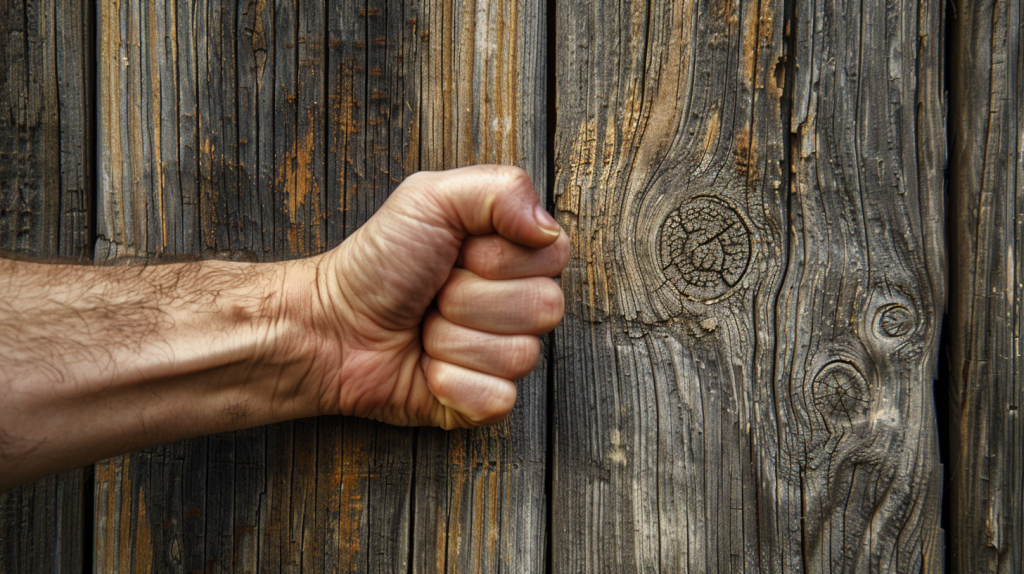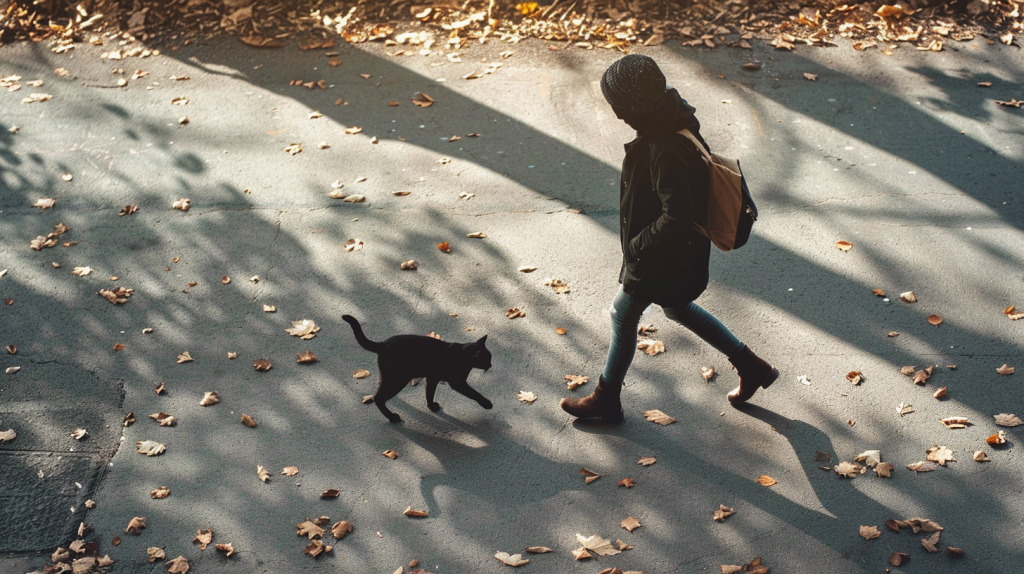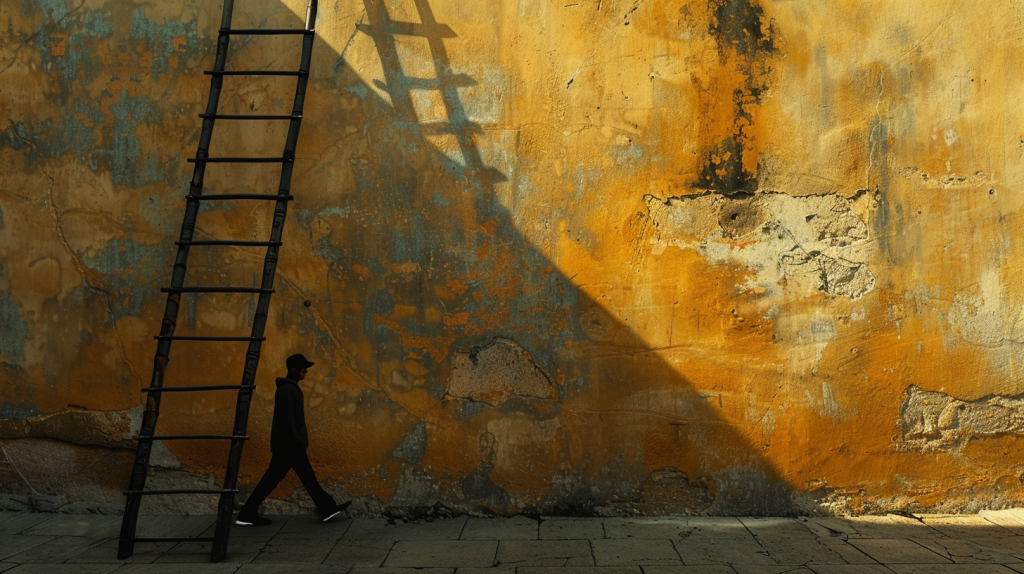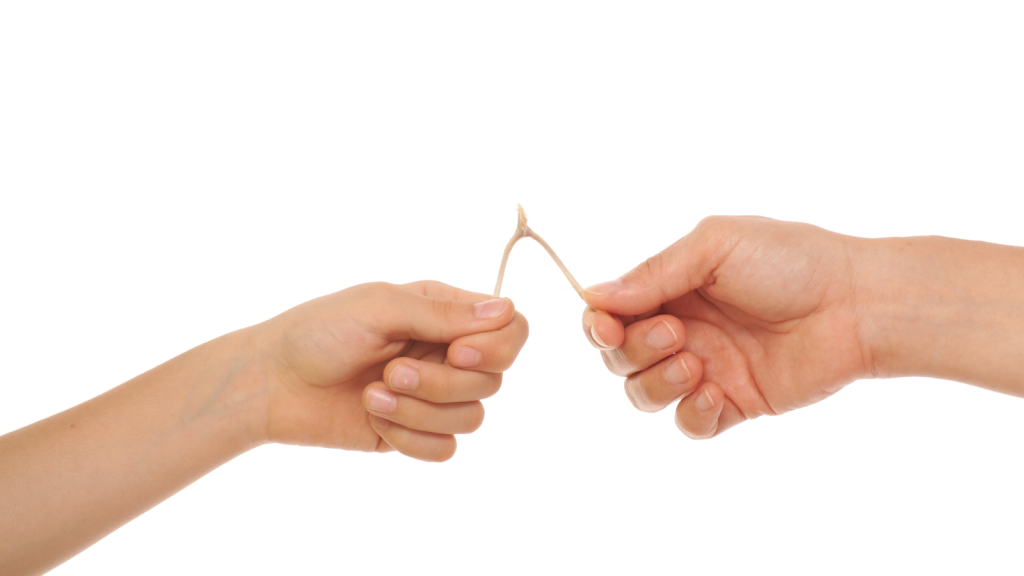Superstitions are like old friends – familiar, but often mysterious. We follow them without knowing why, passing them down through generations. But every superstition has a story, and some of these tales are as fascinating as the beliefs themselves. Let’s dive into the origins of 15 common superstitions that have shaped our behaviors for centuries.
Knocking on Wood

This widely practiced superstition has roots in ancient tree-worshipping cultures. People believed that trees housed protective spirits. By knocking on the tree, they thought they could wake the spirit and ask for its protection. Over time, this evolved into the general practice of knocking on any wood for good luck. The action persists today, even though most people have forgotten its connection to tree spirits.
Breaking a Mirror Brings Seven Years of Bad Luck

The fear of breaking mirrors dates back to ancient Rome. Romans believed that life renewed itself every seven years, and that the soul’s reflection lived in mirrors. Breaking a mirror meant damaging your soul, which would take seven years to fully heal. This belief spread across cultures and time, leading to the modern superstition. Even today, many people feel a twinge of worry when they accidentally break a mirror.
Black Cats Crossing Your Path

The fear of black cats has a dark history rooted in the Middle Ages. During this time, black cats were often associated with witches and evil spirits. People believed witches could transform into black cats to move around undetected. This led to widespread fear and persecution of both black cats and women accused of witchcraft. Sadly, this superstition persists in many cultures, making black cats less likely to be adopted from shelters.
Walking Under a Ladder

This superstition has both practical and symbolic origins. Practically, walking under a ladder is genuinely risky – something might fall on you! Symbolically, a ladder leaning against a wall forms a triangle, which some cultures considered a sacred shape representing the Holy Trinity. Walking through this triangle was seen as breaking the Trinity and inviting bad luck. The combination of real danger and religious symbolism made this superstition stick.
Friday the 13th

The fear of Friday the 13th, known as paraskevidekatriaphobia, blends two separate superstitions. In Christian tradition, Friday was considered unlucky because it was the day of Jesus’ crucifixion. The number 13 has long been considered unlucky in various cultures. When these two superstitions combined, Friday the 13th became a double whammy of bad luck. This belief gained more traction in the 20th century through books and movies.
Throwing Salt Over Your Shoulder

This superstition stems from the ancient belief that spilling salt was bad luck because salt was once so valuable. The practice of throwing spilled salt over your left shoulder comes from the idea that the devil lurks behind your left shoulder. By throwing salt in the devil’s eyes, you could blind him and prevent him from causing mischief. While we no longer fear the devil behind us, many still toss salt over their shoulder out of habit.
Opening an Umbrella Indoors

This superstition likely started in Victorian England when metal-spoked umbrellas became popular. These umbrellas were large and unwieldy, and opening them indoors could easily lead to broken objects or injured bystanders. The superstition probably began as a practical warning against causing accidents. Over time, it evolved into a general belief that opening an umbrella indoors brings bad luck, even with our much smaller modern umbrellas.
Saying “Bless You” After a Sneeze

This custom dates back to ancient times when people believed that sneezing expelled the soul from the body. Saying “bless you” was a way to protect the sneezer from evil spirits that might try to enter the body in that moment. Another theory suggests it started during the plague, when sneezing was an early symptom. The blessing was a wish for good health. Whatever its origin, this polite custom has stuck around long after we’ve forgotten why we do it.
Itchy Palms Mean Money Is Coming

This superstition varies across cultures, but often an itchy right palm means you’ll receive money, while an itchy left palm means you’ll lose money. Some believe this stems from the ancient practice of palm reading, where lines on the palm were thought to predict fortune. Others think it might be related to the fact that handling money can sometimes cause skin irritation. Regardless of its origin, many people still get excited when their right palm itches!
Beginner’s Luck

The concept of beginner’s luck has been around for centuries, but it might have more to do with psychology than supernatural forces. When beginners try something new, they often have low expectations and feel less pressure. This relaxed state can lead to better performance. Additionally, we tend to remember instances that confirm the belief in beginner’s luck and forget those that don’t, reinforcing the superstition.
Four-Leaf Clovers Are Lucky

This superstition dates back to the Druids in ancient Ireland. They believed that four-leaf clovers could help them see evil spirits, allowing them to avoid danger. As Christianity spread through Ireland, the four leaves came to represent faith, hope, love, and luck. The rarity of four-leaf clovers – about 1 in 10,000 – added to their perceived value. Today, finding a four-leaf clover is still considered a sign of good fortune.
Crossing Fingers for Good Luck

This gesture likely began in pre-Christian times as a way to ward off evil. Early Christians adapted it as a secret way to recognize each other and ask for divine protection. Over time, it evolved into a general gesture for good luck. The action of crossing fingers might also serve as a focus point for positive thoughts, which could explain why it’s persisted even as its religious significance has faded.
Breaking a Wishbone

This tradition dates back to the ancient Etruscans, who believed birds could predict the future. They would keep the wishbone of a bird and stroke it to make wishes. When the Romans adopted this practice, they added the element of breaking the bone. The person left with the larger piece was thought to have their wish granted. This custom spread through Europe and eventually to America, where it became associated with Thanksgiving turkeys.
Rabbit’s Foot for Luck

The belief in the luck-bringing power of a rabbit’s foot has roots in Celtic tradition. Rabbits were associated with fertility and good fortune due to their ability to produce many offspring. The left hind foot was considered especially lucky because rabbits touch the ground with it first. Sadly, this superstition led to the widespread killing of rabbits for their “lucky” feet. Today
continue
, many people carry synthetic rabbit’s foot keychains, keeping the tradition alive without harming animals.
Stepping on Cracks Breaks Your Mother’s Back

This playground rhyme likely began as a way to teach children to walk carefully and avoid tripping. Over time, it evolved into a superstition, possibly influenced by the belief that cracks could be portals for evil spirits. The specific mention of mothers might relate to the importance of maternal figures in many cultures. While no one actually believes this saying anymore, many people still playfully avoid stepping on cracks out of habit.
Katy Willis is a writer, master herbalist, master gardener, and certified canine nutritionist who has been writing since 2002. She’s finds joy in learning new and interesting things, and finds history, science, and nature endlessly fascinating.
